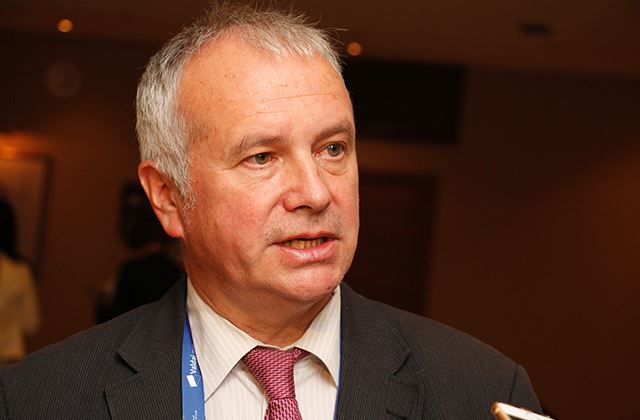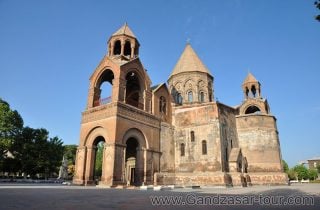Karabakh Settlement Process Appeared at a Deadlock, Conditioned by Developments in the Conflicting Countries: Alexander Rahr

“All known documents on NK conflict supposed bilateral concessions,” Alexander Rahr, representative of Russian Valdai Discussion Club, German analyst, told 168.am reflecting to NK conflict peaceful settlement process.
Alexander Rahr stated that after the tragic April four-day war, considerable changes on the conflict zone haven’t been recorded, except two presidential meetings, during which presidents touched upon indirect issues. In his words, it’s not even clear from the results of those meetings to which point the presidents have reached in negotiations or in agreements around ceasefire.
“This speaks of the fact that the process is really complicated, in particular, when there were talks on the third meeting—it was to be held in France, then in Russia, and today all the talks around that meeting have stopped. To all probabilities, this is for the reason that Armenia’s internal political life has unexpectedly sharpened, and today already Constitutional amendments are anticipated in Azerbaijan. These processes more alienate the sides from the settlement process, in particular, when, in my conviction, there is no document, completely acceptable for one side,” Alexander Rahr said.
According to the latter, even if during two presidential meetings content discussions have been launched, unknown to the expert community, they are surely within former settlement documents and frameworks. The German analyst believes that those frames are rather clear—withdrawal of some provinces around Karabakh and clarification of NK status. “This isn’t a unilateral concession of any side, in this case concessions from both sides are necessary, I consider, mediators are interested to settle the conflict within this framework, and that neither side felt defeated or winning,” German analyst noted.
To the question why opinions are being circulated that unilateral concessions will be exerted to Armenia, Rahr replied that he doesn’t know from where that information is being circulated. “Upon information at my disposal, based on my research, both Madrid Principles and the well-known Kazan document scenario supposed bilateral concessions. If it’s a unilateral concession for the Armenian side, then maybe there is need for more active social discussions to understand which settlement variant is preferable to the Armenian community,” Alexander Rahr said.
Touching upon the issue by which the existent silence around the settlement process is conditioned, when parallel to it new models of regional cooperation are being developed without Armenia’s participation, Rahr said that really different dynamic developments are recorded conditioned by ongoing situation in Syria, new situation around Iran and the process of Russia-Turkey rapprochement.
“However, I consider the ongoing situation in NK conflict peaceful settlement—the deadlock, is exclusively conditioned by moods of the conflicting countries and developments in those countries. As I mentioned, both in Armenia and Azerbaijan changes have been recorded, which couldn’t but be reflected on ongoing situation in NK, from which the parties to the conflict make use of,” Alexander Rahr concluded.
By Araks Martirosyan

























